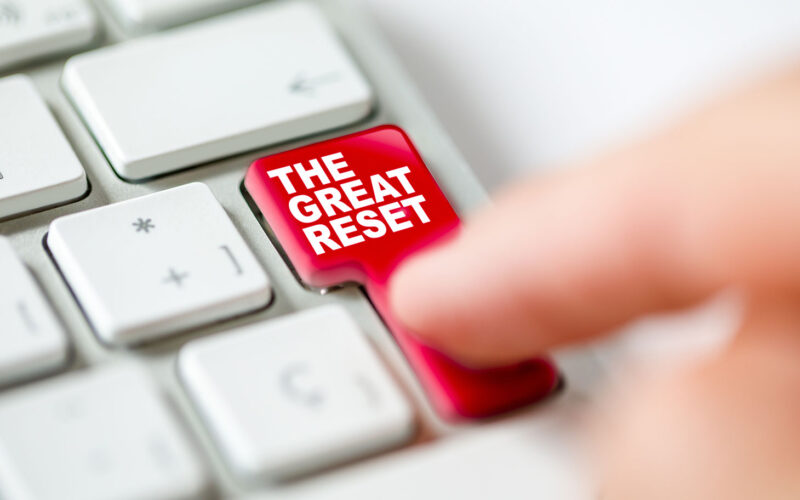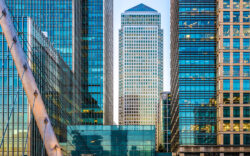But then finally the masses wake up. They become suddenly aware of the fact that inflation is a deliberate policy and will go on endlessly. A breakdown occurs. The crack-up boom appears. Everybody is anxious to swap his money against “real” goods, no matter whether he needs them or not, no matter how much money he has to pay for them. Within a very short time, within a few weeks or even days, the things which were used as money are no longer used as media of exchange. They become scrap paper. Nobody wants to give away anything against them.
– Ludwig von Mises, Human Action
Not many financial anecdotes have the capacity to move the reader to tears. The following one does.
In the economic firestorm that was Weimar Germany in 1923, a young Ernest Hemingway happened to be travelling through the region with his wife. Hemingway converted some loose change into German marks. He went to a fruit stand. He picked out five good-looking apples and paid for them with a 50 mark note. He received 38 marks back by way of change. An elderly gentleman then approached him and asked, somewhat timidly:
“Pardon me sir, how much were the apples?”
Hemingway counted his change and told him: 12 marks.
The elderly gentleman smiled and shook his head:
“I can’t pay it. It is too much.”
Hemingway watched him sadly walk away. He confessed:
“I wish I had offered him some. Twelve marks, on that day, amounted to a little under 2 cents.”
This is an anecdote from Adam Fergusson’s When Money Dies: the nightmare of the Weimar hyperinflation. I recommend this book, not least because we may soon have to listen to its central message all over again.
We have been living with unsound money for the past 50 years.
The rot started to set in when US President Richard Nixon took the dollar “off gold” in 1971. That is to say, he removed the convertibility of US dollars for gold. From that point on, the US dollar – and indeed all other currencies in the world – were no longer backed by gold, but simply by politicians’ promises.
The Nixon “gold shock” was swiftly followed by the Arab oil embargoes. With currencies left to drift untethered on the foreign exchange markets and the oil price shooting up, inflation quickly erupted. Stockmarkets collapsed. The fabric of civil society was torn. Here in the UK, the government ended up going to the International Monetary Fund for a bailout. Things only stabilised with the election of Margaret Thatcher and a new type of economic policy.
Some form of economic reset now seems likely, again.
The government’s grotesque mishandling of the coronavirus pandemic (this interview suggests it should more fairly be called a PCR test pandemic) means that, once again, our national finances are shot. The UK national debt recently soared through the £2 trillion level – an all-time record. But our national creditworthiness is being assaulted on two fronts at the same time: government spending is going through the roof – even as future tax receipts face being demolished due to the economic hit of the government’s farcical response to the pandemic.
The UK’s predicament is not, of course, unique. But our government’s response to coronavirus may be uniquely bad in a global context. We are coming last in an international bicycle race by actually going backwards.
(One supranational body is actively promoting a “Great Reset”: the World Economic Forum. You know, those nice chaps behind Davos. An altogether more sceptical assessment of the WEF’s agenda can be found here.)
Coronavirus, and governments’ various responses to it around the world, have hugely increased government debt burdens that were already unsustainable.
But there are only three ways for governments to attempt to “resolve” the global debt crisis.
One is for them to engineer enough economic growth to keep up their debt and interest repayments. Good luck with that strategy in a shattered post-coronavirus economy.
One is for them to default on their debts. Since we operate within a debt-based monetary system, that option could politely be called “Armageddon”.
So what’s in box number three?
Box number three happens to contain the solution to which every debt-burdened government has ultimately resorted, throughout world history: an explicit policy of state-sanctioned inflationism. Default by stealth, if you prefer.
Governments, and their agent central banks, and their newly commissioned commercial banks, will simply print as much money as they need to keep the debt bandwagon on the road. They may even force investors and fund managers to buy their bonds. This is known as financial repression – and it’s consistent with the likes of the Bank of England taking interest rates all the way down to zero and then below it. (And then phasing out cash altogether, so there’s no means of escape.)
Some investors suspect that we will experience a period of deflation first. That may indeed be true. The desperate technocrats in charge already have their paws on every lever and switch at their disposal – but they stopped being in control of the machine a long time ago. The looming cost of the coronavirus crisis and the semi-permanent nature of lockdowns shows that arbitrary top-down policies always come with unintended consequences.
So how can we try to protect our valuable capital from the looming predations of Big Government?
The fundamental unattractiveness of both cash and government bonds is obvious. That leaves two other main types of assets: property, and listed stocks.
I find the idea of owning property during a great reset somewhat problematic. Prices for both commercial and residential property in central London for example seem likely to be under pressure for the foreseeable future. What happens to prices when huge extra supply collides with evaporating demand? (There may well be pockets of more sustainable value in property further afield.)
Which leaves us with opportunities in the stock markets. It’s important to remember that there is tremendous choice available in the world’s equity markets. We don’t all have to invest in the so-called FAANGs (the likes of Facebook, Alphabet, Apple, Netflix and Google, all of which have enjoyed incredible gains even at the height of the supposed pandemic).
My natural preference is to own high-quality cheap stocks – and there are plenty around. You just have to be looking in the right places. Right now, Japan is one of those places.
Why Japan?
Consider what the country has already been through. Japanese companies have just experienced a grinding, quarter-century period of deflationary depression. As a result of carefully stewarding their resources, Japanese companies now have the healthiest balance sheets in the world.
Compare that to the situation of American companies – many of which have never been more highly leveraged in their entire corporate history. I know which stockmarket looks stabler to me.
Another asset that makes sense to own ahead of any “reset” is, of course, gold.
Why gold?
Because it’s been “money good” for thousands of years, and it’s the one form of money that is nobody else’s liability. No single government controls the gold price – albeit plenty of governments, via their central banks, have been buyers of the stuff.
If you’re concerned about the likelihood of some form of monetary reset, gold is the natural go-to asset of choice. The same holds true for high-quality gold mining companies, especially if their shares can be bought at comparatively cheap levels. (I would also avoid shares in any company carrying a high amount of debt.)
In short, I think that global inflationary risks and global currency risks are building. Happily, there is a wealth of documented experience from prior similar crises, so there is still time to act.
Consider the following warning from Jens O. Parssons, in his book Dying of Money: Lessons of the great German & American inflations:
Everyone loves an early inflation. The effects at the beginning of inflation are all good. There is steepened money expansion, rising government spending, increased government budget deficits, booming stock markets, and spectacular general prosperity, all in the midst of temporarily stable prices. Everyone benefits, and no-one pays. That is the early part of the cycle. In the later inflation, on the other hand, the effects are all bad. The government may steadily increase the money inflation in order to stave off the latter effects, but the latter effects patiently wait. In the terminal inflation, there is faltering prosperity, tightness of money, falling stock markets, rising taxes, still larger government deficits, and still roaring money expansion, now accompanied by soaring prices and an ineffectiveness of all traditional remedies. Everyone pays and no-one benefits. That is the full cycle of every inflation.

Tim Price
Editor, Southbank Investment Research
PS Something to look out for tomorrow…
I’ve been a private wealth manager for almost 30 years now, and one thing I have learned is that much like a punch in a boxing ring, the real knockouts in the financial market come from the hits you do not see until it’s too late. Tomorrow you are going to hear about one largely unseen threat you need to quickly understand: the prospect of financial lockdowns in the UK… the spectre of what Nick Hubble calls “Financial Martial Law”.
Watch out for Nick’s email at 9am sharp – it will alert you to a rather insidious scheme the government has put together to rescue the banks in the next financial crisis. One that could leave savers in a state of concussion.




